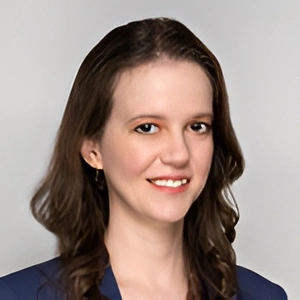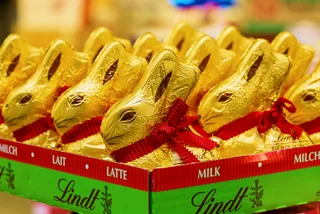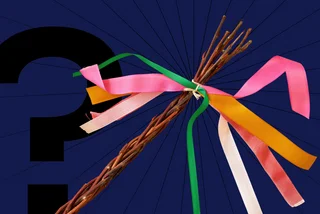Prague is preparing to host one of the most visible events of its EU Council presidency. The Prague Summit will take place on Oct. 6 and 7, with the first day dedicated to the European Political Community (EPC), and the second to the Informal European Council. What do these events mean in a local as well as a larger context and how will the presence of dozens of world leaders in Prague affect daily life?
Which international leaders will come to Prague?
Along with the 27 EU countries, 17 non-member countries, including Ukraine, Armenia, Azerbaijan, Georgia, Switzerland, Norway, Kosovo, and the UK have also been invited to the summit. The summit will also see the participation of Turkish President Recep Tayyip Erdoğan.
The European leaders include French President Emmanuel Macron and British Prime Minister Liz Truss, according to ČTK. Czech Prime Minister Petr Fiala will meet Truss for talks in Prague's Kramar Villa on Thursday, ahead of the start of the summit, ČTK also reports.
Ukrainian President Volodymyr Zelenskiy will join the summit virtually from Kyiv, while Prime Minister Denys Shmyhal will represent Ukraine at the Prague meetings. Among the notable absentees are Russian President Vladimir Putin and representatives of Belarus who support the Russian aggression in Ukraine.
Out of 44 state representatives invited, Danish Prime Minister Mette Frederiksen is the only one who will not attend the Prague European summit on Thursday for internal political reasons. She will, however, be present at the informal meeting on Friday.
What is the purpose of the summit?
According to the European Council, the first-time meeting of the EPC will serve to discuss "three most pressing, and interlinked, issues facing the EU, namely Russia's war in Ukraine, energy, and the economic situation."
Secondary School English teacher

The Czech Presidency of the Council of the European Union presents the meetings as a new, broader format of European countries, grouped together under the newly-created EPC.
"This new platform will bring together European leaders to discuss key issues affecting the European continent," the press release reads, adding that these issues include security and peace, energy, climate and the economic situation.
The summit will start with the Leaders Meeting within the European Political Community. As Hans Kribbe and Luuk van Middlelaar write in an article for Politico, "it’s important to remember that this nascent community is not primarily about policy but about politics and polity," which means "the key 'deliverable' is nothing but the guest list itself, as well as the family photo projecting European unity, and a joint decision to meet again."
Prague Summit by the numbers
- 2,500 people may be present in the Prague Castle complex during the summit.
- 1,200 journalists from all over the world registered for the event.
- 500 police, protection units, and military officers will provide guard participants.
- 250 vehicles are prepared to transfer the incoming leaders and their delegations.
- 44 heads of state have been invited to the summit.
- 15 hotels will be occupied.
Another crucial detail, they note for Politico, is that the Prague meeting places the international leaders on equal footing, and is not connected to EU membership aspirations. "The 17 outside the EU don’t want to be perceived as second-class countries, 'candidates,' 'pupils' or 'outs'."
The Informal European Council, which is the meeting taking place on the second day, will bring together heads of EU member states, and map out the future direction of the EU. It will offer a platform for the EU leaders to discuss key topics, and prepare for a formal EU Council scheduled to take place in two weeks in Brussels.
Neither the formal nor the informal meeting is intended to lead to any official declarations or conclusions.
How will daily life in Prague be affected?
With some 2,500 foreign guests arriving in Prague, half of them journalists from all over the world, residents of the Czech capital can expect some minor inconveniences.
Traffic disruptions are to be expected in the area of Prague Castle, which is the location of the summit and has been closed to visitors since Tuesday. The castle will remain closed to tourists until Saturday during the summit but the area around the Castle will still be open.
Traffic to and from the Václav Havel airport is also likely to see some flight delays and traffic disruptions due to the arrivals of politicians attending the summit.
Additionally, car traffic on Hradčanské náměstí will be restricted. And Praguers should note that Evropska street, west of the city center, will be used by the motorcades to move politicians from the airport to the center of Prague.
âš 1/2
— Prague Airport (@PragueAirport) October 3, 2022
Due to possible traffic jams caused by motorcades of EU leaders attending Prague summit on 6⃣ and 7⃣ October, we recommend passengers to allow enough time for their journeys to/from the airport.
2/2
— Prague Airport (@PragueAirport) October 3, 2022
Slight delays may be experienced due to specific requirements of arriving state flights, which will mostly be handled at Terminal 4⃣.
What security measures will be in place?
While some participants prefer to fly in, others will arrive in their own vehicles at the Czech border, and will then be escorted to the summit venues in the Czech capital.
Martin Kaiser from the police protection service told Denik N that the summit was the largest security operation of its kind in modern Czech history, similar in scope only to the funeral of former President Václav Havel.
To illustrate the complexity of the preparations, Kaiser said that in the past, a statesman brought fifty bodyguards of his own to a similar summit. In addition to their own protection, the attendees will also be supervised by experienced police officers, usually one for each participant.
To ensure their security, the airport will use emergency units and snipers on the roofs, Kaiser also told Denik N.












 Reading time: 4 minutes
Reading time: 4 minutes 



 German
German
 Czech
Czech
 Slovak
Slovak
 Arabic
Arabic
 Turkish
Turkish

























